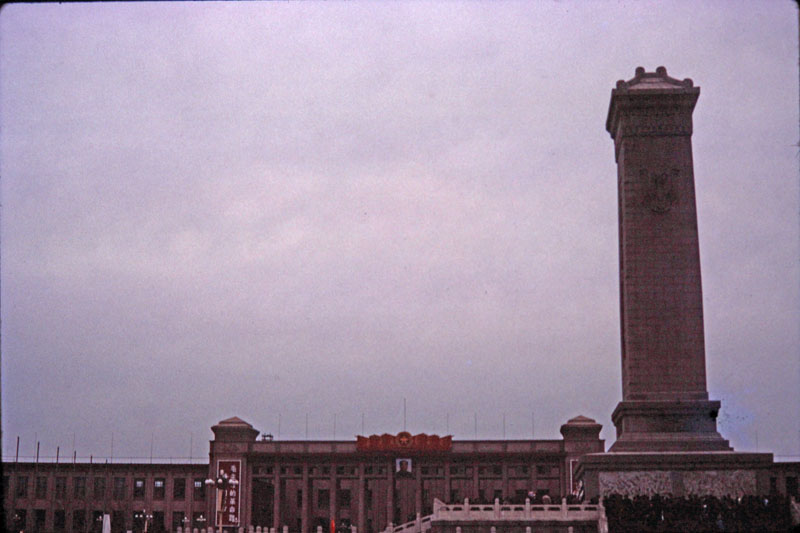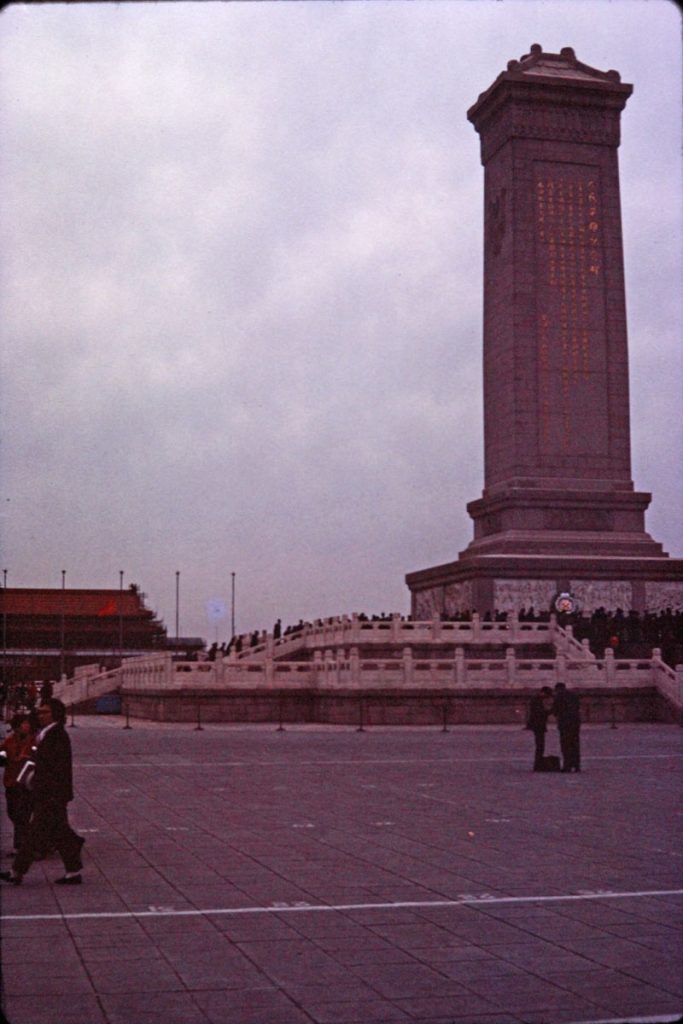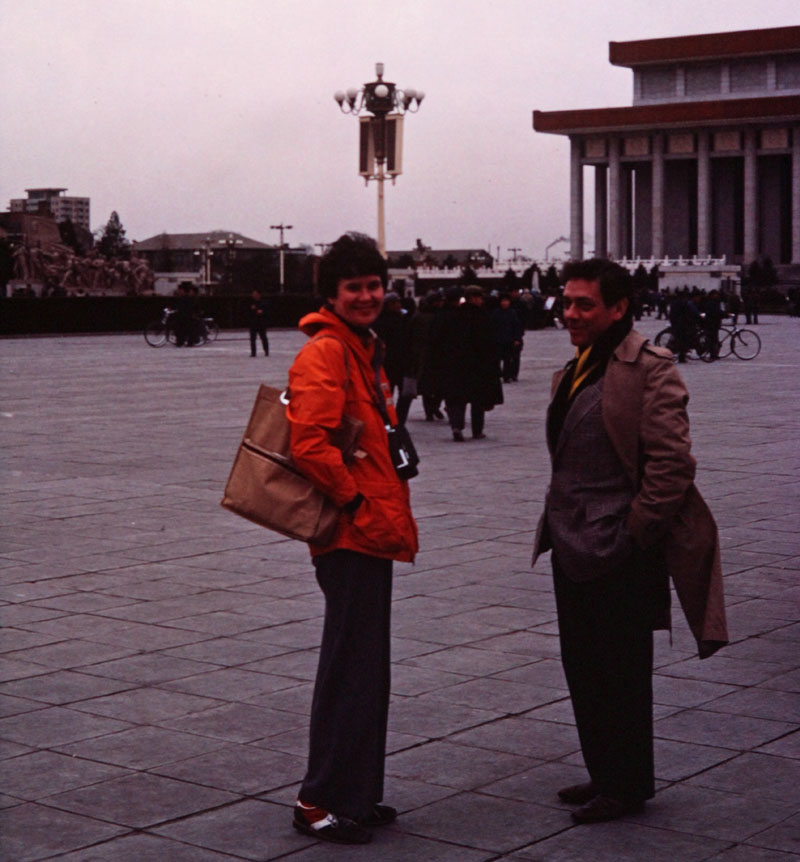April 1, 1980
It is shortly after 8pm, Seattle time, as Mary and I relax after dinner. We are on our way to Tokyo and then to China, all as the result of Rachel’s birthday. Betty, in a birthday greeting to Rachel, said she was going to China with Jim Thomson and a tour. We immediately called Jim, found there was room, and signed up – all without thinking about finances, the children, the practice at the office or any other practical considerations. We have surmounted all these problems – plus Freia being knocked up [our German Shepard – Allison] Sunday (2 days ago) and here we are.
The only other time I kept a diary was during my navy service. That effort, on rereading, wasn’t much, but this trip is so far out of the ordinary that I want to try again.
This is not to be a chronicle – there will be no coherent thread – only impressions.
We left from Seattle at noon today and flew directly to Anchorage, where we met with the rest of the tour that had started in NYC. Sydney Brown also was on the plane, having started in San Francisco.
Two things stand out: 1 – what a pleasure it is and will be to be with the Thomson children for 3 weeks – also Betty of course. She is beginning to have wrinkles of age, but otherwise is no different. 2 – the wild turbulence going into Anchorage. Never have I experienced on a jet the wild gyrations we went through in the last 15 minutes before we landed. No fun, although I gather just a bit more than routine for the pilots (at least that is what the pleasant JAL fellow told us).
Brilliant mountains and water on the way to Anchorage. Mary is excited for the summer. 3 ½ hours to Anchorage. 7 ½ to Tokyo. Everyone who started in NY is asleep.
[Note: I have kept Dad ‘s spelling of cities – Allison]
April 3, 1980 – Hotel Nikko Narita
Shortly before noon. Mary and I are sitting in our room after a leisurely morning that consisted of a Western breakfast (delicious pineapple), and a taxi tour with John, Peggy, and Sydney of a Buddhist temple. I approve of a day of rest after the long yesterday before plunging into the purpose of the tour – China.
The airport situation was the usual tedious standing in lines. As we landed I thought that we might as well be in any USA airfield – signs in English and lots of Boeing and McDonald jets. Very modern airport and impossible to tell that its very existence here had been a matter of enormous controversy and bitterness. For us on the plane, the sun never set until after we arrived. Neither Mary nor I got any sleep on the plane, but we were not that tired. It was much easier coming from Seattle than NYC. Anchorage is ½ the way to Tokyo. For them – a long day.
Mobs of people at the airport. It seems as though every international flight due that day had arrived at the same time although the situation is about normal. Searched for our bags (everyone else had theirs checked through to Peking, but I did not know this was possible), customs nothing. Then on to a bus, to the hotel, which is about 10 minutes from the airport. Modern pleasant place, owned by JAL. The room was hot and the windows locked, but turned on the “air conditioning.” This morning discovered “air conditioning” is heat and the proper procedure is to call for room service who has magic tool to open the window. Anyway – marvelous tempura dinner last night with Thomson family.
April 5 – Peking Hotel
Our second day and all is well. Leaving Tokyo was less hectic than arriving – just the bus to the airport, the usual standing around and then on the plane. I was pleased to find a 747 and hoped the training in Seattle had been thorough. We left shortly after 6pm and arrived at Peking sometime after 11 (10 local) We wobbled and bounced on the trip – I didn’t believe passenger comfort is high on the airline’s priority. Much delay at the airport because one of the passengers (Mrs. H? from Florida) could not find her luggage. (It only arrived today). Filling out a lost luggage report that is all in Chinese makes for slow going.
On the way to the hotel we were handed little magenta slips with a room number on it, so when we got here we went straight up – no check in or anything else. We have a large room on one side of the hotel, overlooking the Forbidden City. Pleasant, functional with a balcony. Went for a walk with the Thomson clan before bed.
Yesterday a.m. the Forbidden City in the morning and Temple of Heaven in the p.m. The effort that went into constructing there is simply amazing. It is not my intention to make this diary a travelogue, so I will not attempt these or other places.
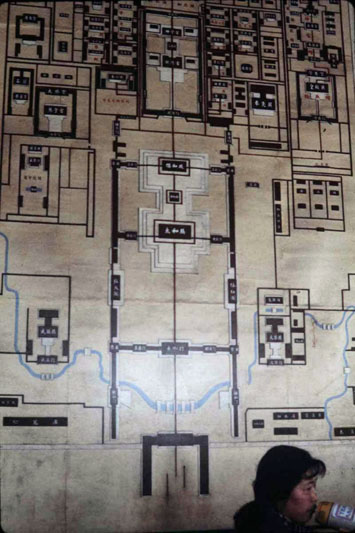
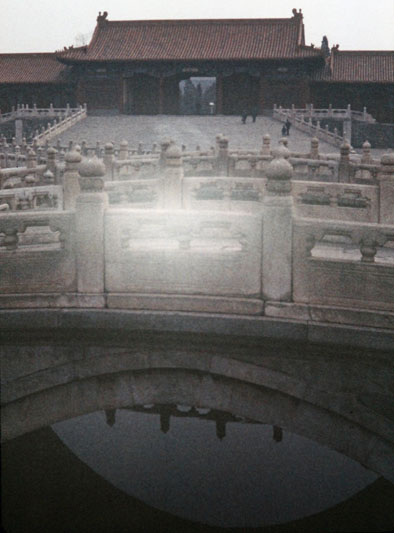
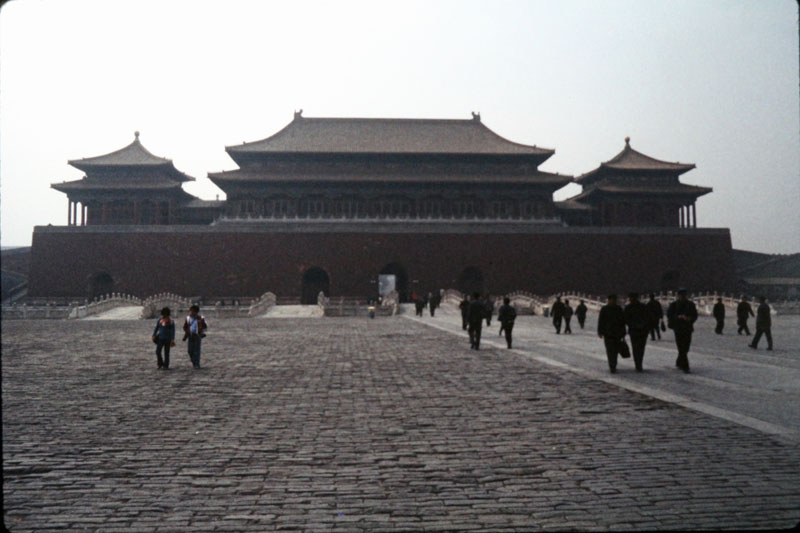
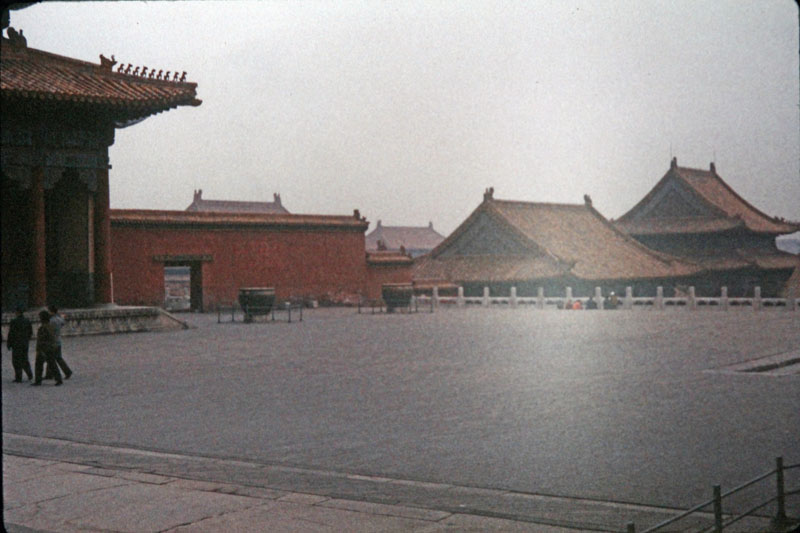
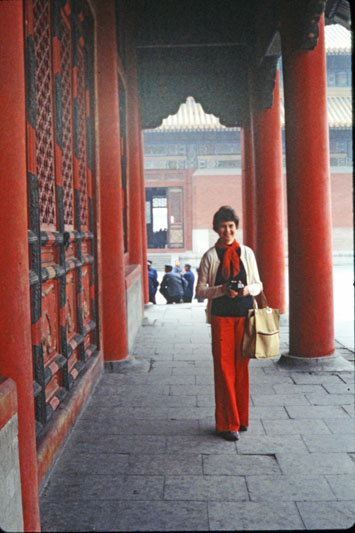
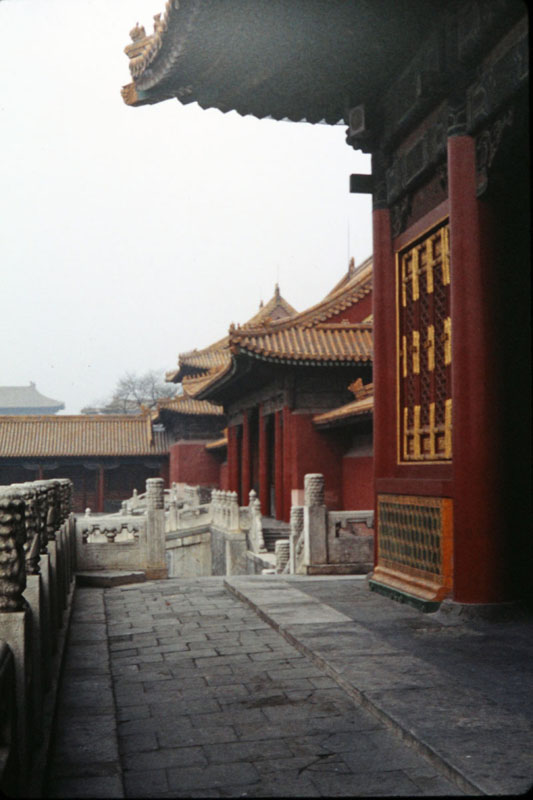
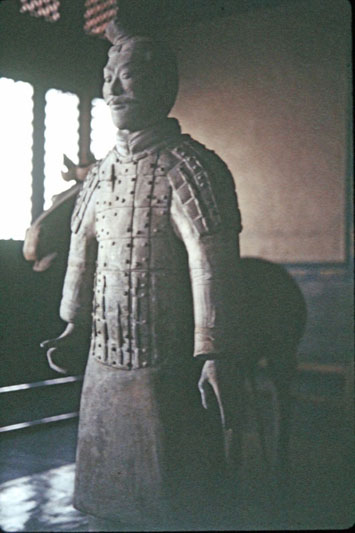
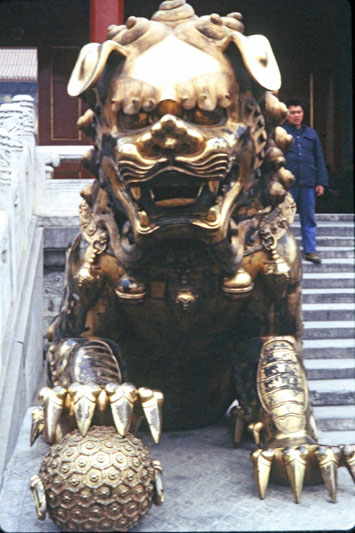
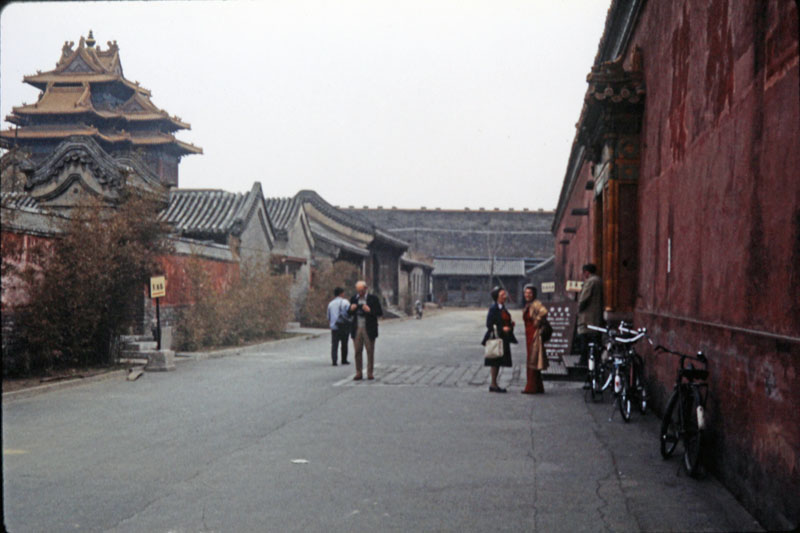
The main street of Peking is, I think, in front of the hotel. It is the broadest street I have ever seen – perfect for parades for millions. It must be a legacy from the Russian days. Thousands of people on bicycles constantly are on the go along this street. No one in a hurry; just an endless stream of them. The bicycles are one make only, but it appears well built and quite serviceable. There are so many people – I believe that the Chinese could accomplish anything they wanted to simply because of the sheer number of people they could commit to any project.
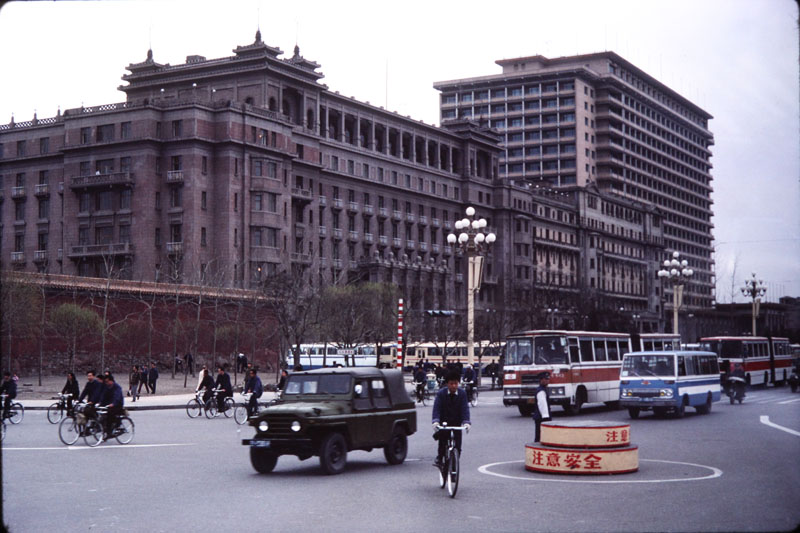
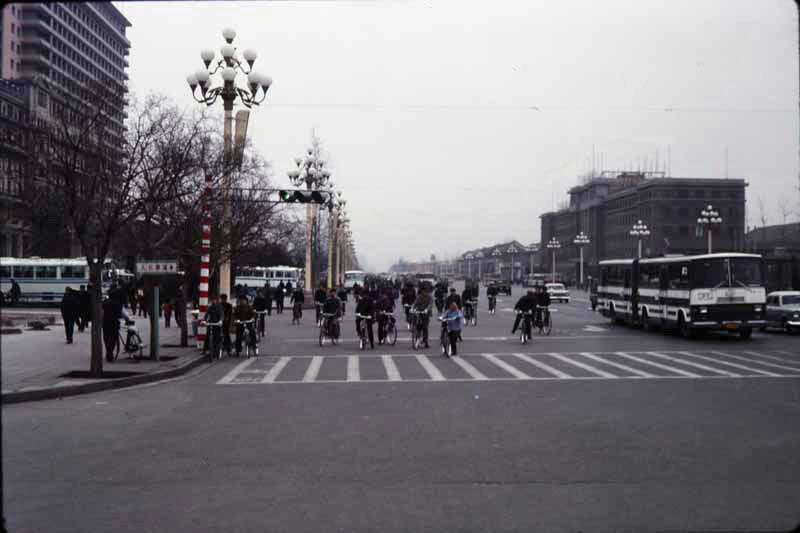
After dinner last night we all reassembled in a room to hear from Tah Oka (phonetically) of the Christian Science Monitor and Mrs. Cohan (same), wife of a resident lawyer and one historian. I’m sure their insight and information were informative and valuable – unfortunately I heard nothing because I promptly fell asleep. After a half hour I awoke, excused myself and left. In my defense I will say that I was not the only casualty.
This morning a political briefing. Mr. Zie Li, Deputy Director of Chinese Institute for Foreign Relations. His purpose was to discuss with us foreign affairs. This we did for the better part of two hours and it was fascinating. First of all to hear all the code words actually being used – imperialists and hegemonists for the Russians, particularly. His exposition on how to deal with the Russians was quite chilling – stand up to them everywhere, for if we didn’t we would soon be defeated. Stand and fight in Afghanistan, for if we gave way there, Iran would be next, then the remaining oil states would fall, and we would be lost. The Russians were bluffers, when it came to war and use of the atom bomb – witness Vietnam where the Chinese “responded” to attack – the Russians threatened to retaliate with atomic warfare, but backed down when the Chinese called their bluff.
Ultimately, if there is atomic warfare there will be survivors and life will start again. I suppose if I were talking as one of a billion Chinese I could say that also, but I found it a bit spooky.
He also believed we had had a lead over the Russians with missiles, but had given up that with SALT II.
I asked whether the situation with Taiwan was impeding US-Chinese relations. The essence of his answer was that the PRC could not understand our position because they were willing to make all kinds of concessions to protect US investment, etc.; the answer US senators gave him was that “we cannot abandon old friends,” which he thought was not recognizing reality.
(This is being written on the morning of April 8 on the train between Peking and Nanking, so it may not be the clearest writing – my writing is never neat anyway.)
The meeting touched on all aspects of world foreign affairs and necessarily simplistic but very informative.
After lunch we went to “antique” street – a narrow, little roadway that seems to have been deliberately maintained as it was before liberation. There were maybe 10 stores selling antiques of all kinds: scrolls, silverware, china, etc. – at very expensive prices. Interesting, but I did not buy – rubbings seemed to be the most popular purchase.
Then we went on a tour of one of the underground bomb shelters that apparently honeycomb the city. This one was constructed in 1969 by workers in the stores, who volunteered their time after normal working hours. There are 90 entrances to this particular system, which is designed so that 10,000 people can get down in 5-6 minutes. This system is connected to others in the city and it even extends to the suburbs. It is designed so that the people will stay only for a few days – what happens after that is somewhat uncertain. This system had wells, generators, cots – everything for survival; but I suspect it is obsolete for today’s problem. The entrance we used started right in the middle of a clothing store – part of the floor slid away like a trap door and there were steps down – 8 meters.
Then we were directed to the arts and crafts store. I have the feeling that there is a very deliberate effort to get foreigners to spend money. Here, as elsewhere, there was always time to buy things. The country is so short of foreign currency, so I guess they feel that everything helps. Mary bought some material; I, as usual, just looked.
Then a banquet at Peking’s finest duck restaurant. The Peking Roasted Duck Restaurant locally called “The Sick Duck”. It was ok; that is the best I can say. The meal got off to a poor start when Mrs. Lu, our guide, announced that all parts of the duck were used – and we started off with the liver and “webbings”. The main part of the duck was tasty, but I can’t say that I am a big fan of Peking roast duck. Two hours, ending up with bone soup.
The next scheduled event was the opera. I still was suffering from jet lab, so passed it up. I was asleep at 9am.
[At some point, they toured Tiananmen Square; here are the images – Allison]
